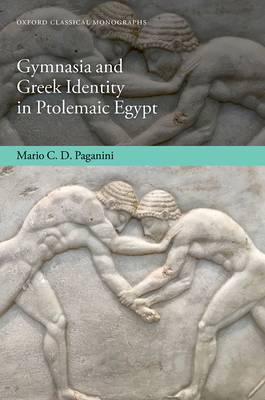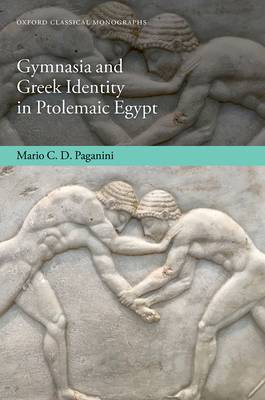
- Afhalen na 1 uur in een winkel met voorraad
- Gratis thuislevering in België vanaf € 30
- Ruim aanbod met 7 miljoen producten
- Afhalen na 1 uur in een winkel met voorraad
- Gratis thuislevering in België vanaf € 30
- Ruim aanbod met 7 miljoen producten
Zoeken
Omschrijving
This book provides the first complete study of the documentation relevant to the gymnasium and gymnasial life in Egypt at the time of the Ptolemies, the longest reigning Hellenistic Royal House (323-30 BC). Paganini analyses the diffusion, characteristics, administration, and developments of the institution of the gymnasium in Ptolemaic Egypt and its implications for the assertion of Greek identity. He shows how this institution and its people were affected by the local environment and how 'those from the gymnasium', the members of this most distinctively Greek institution, were truly embedded in the social and cultural milieu of the country where they lived: they were the 'Greeks' of Egypt. Thanks to the information originating from Ptolemaic Egypt and its papyrological sources, this work showcases the variety of concomitant features and different traditions that were alive and active in the Hellenistic world, thus contributing to a better understanding of the ancient world in all its complexity and vitality.
Specificaties
Betrokkenen
- Auteur(s):
- Uitgeverij:
Inhoud
- Aantal bladzijden:
- 336
- Taal:
- Engels
- Reeks:
Eigenschappen
- Productcode (EAN):
- 9780192845801
- Verschijningsdatum:
- 16/03/2022
- Uitvoering:
- Hardcover
- Formaat:
- Genaaid
- Afmetingen:
- 164 mm x 239 mm
- Gewicht:
- 716 g

Alleen bij Standaard Boekhandel
+ 435 punten op je klantenkaart van Standaard Boekhandel
Beoordelingen
We publiceren alleen reviews die voldoen aan de voorwaarden voor reviews. Bekijk onze voorwaarden voor reviews.











